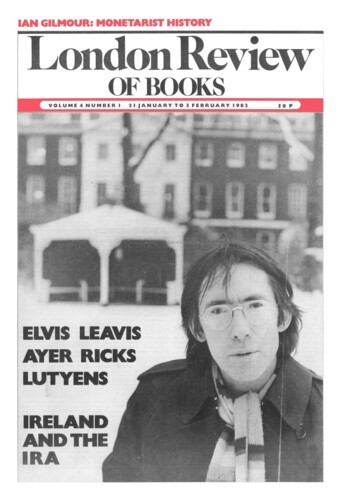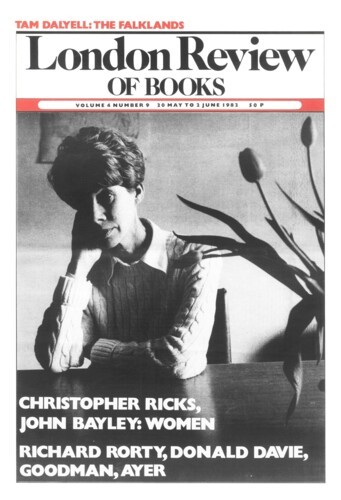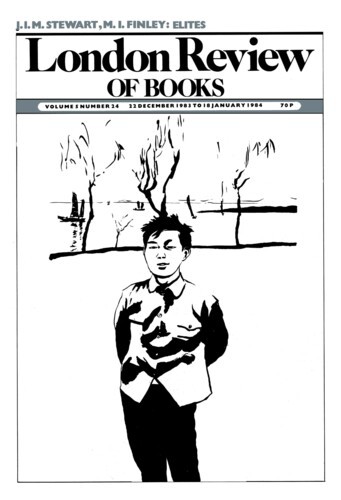Past, Present and Future
A.J. Ayer, 21 January 1982
These three volumes of Professor Anscombe’s collected papers encompass everything of importance that she has published, apart from her work as literary executor and translator of Ludwig Wittgenstein and her three books: Intention, An Introduction to Wittgenstein’s ‘Tractatus’ and Three Philosophers, written in collaboration with Professor Peter Geach, and containing studies of Aristotle, Aquinas and Frege. Her interest in the topic of intention and the teachings of Aristotle reappears in these papers, but they have little overtly to do with either Aquinas or Frege, and the influence of Wittgenstein is much less obtrusive than one might have been led to expect. Only in one paper, ‘The Reality of the Past’, which first appeared in 1950, during Wittgenstein’s lifetime, do we find the submissive footnote: ‘The best that I have written is a weak copy of some features of the original, and its value depends only on my capacity to understand and use Dr Wittgenstein’s work.’





